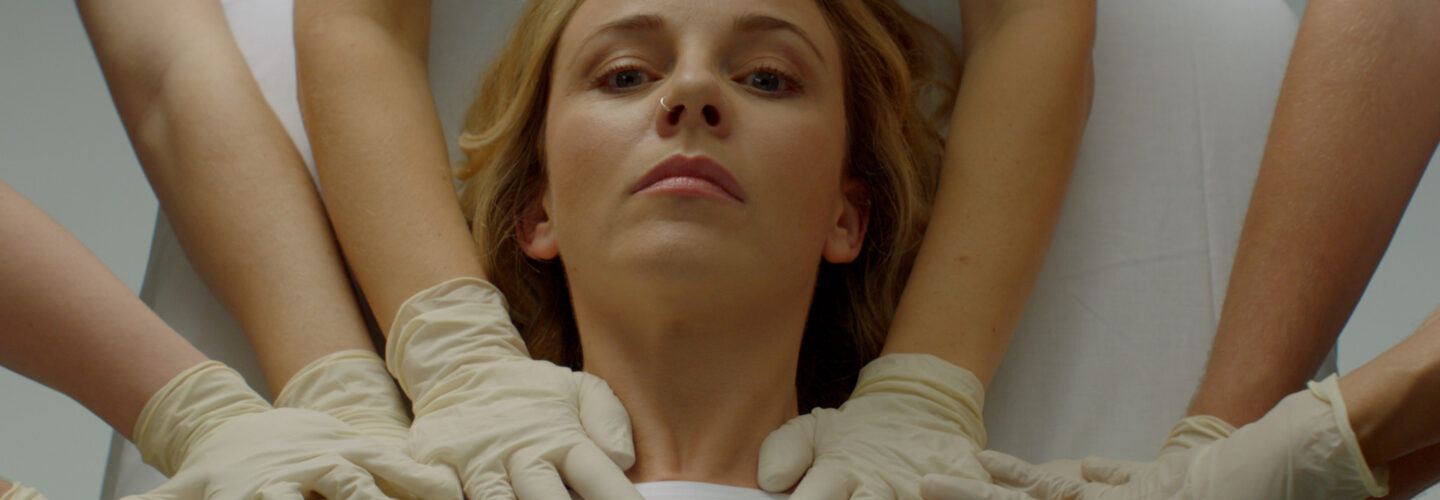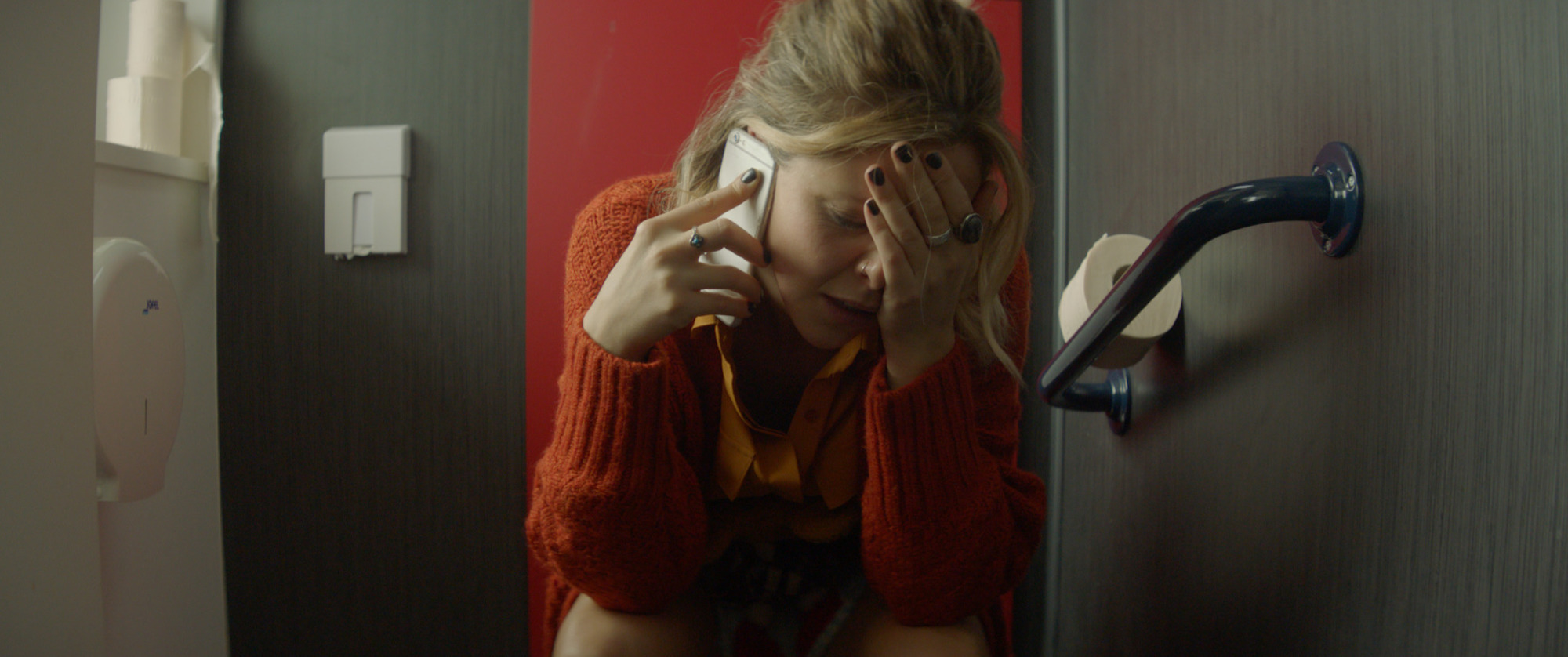
Once again, DN favourite Alice Seabright returns to our pages. Seabright has become a familiar face at DN and is known for her stories concerning taboo subjects, or topics that aren’t as openly talked about as they should be. She continues that trend with End-O, a crowdfunded short film starring Actor/Director Sophia Di Martino all about Endometriosis. End-O follows Jaq, a young woman who, along with her sister, suffers from Endometriosis. It’s a film which explores the trials and tribulations of their condition and relationship and is packed with heart and humour. DN spoke with Seabright ahead of End-O’s world premiere at the London Film Festival to talk crowdfunding, less discussed subjects and the importance of comedy.
Where did the idea to centre a film around endometriosis come from?
My friend and fantastic writer, Elaine Gracie, who has Endometriosis, sent me her script as something we might work together on. It was a hilarious, angry and moving cry from the heart and I immediately knew that I wanted to direct it. It’s a film about this condition, which is woefully under-researched and under-discussed, but it’s fundamentally a film about loss and acceptance. Two sisters struggling with a debilitating condition, coming to terms with the devastating consequences it has on their lives, whilst learning to let go of the sense of shame and weakness that they feel.
Could you talk about balancing the tone of End-O and the process of tackling an important subject matter whilst including comedy and drama?
I’m always interested in telling stories that veer between tones, that can talk about serious stuff and go to an emotional place but can also make you laugh. Elaine’s writing is masterful at doing this, and that’s what drew me to it in the first place. Humour is crucial to how we process difficult things and so I think it’s often the most interesting way to tackle something.
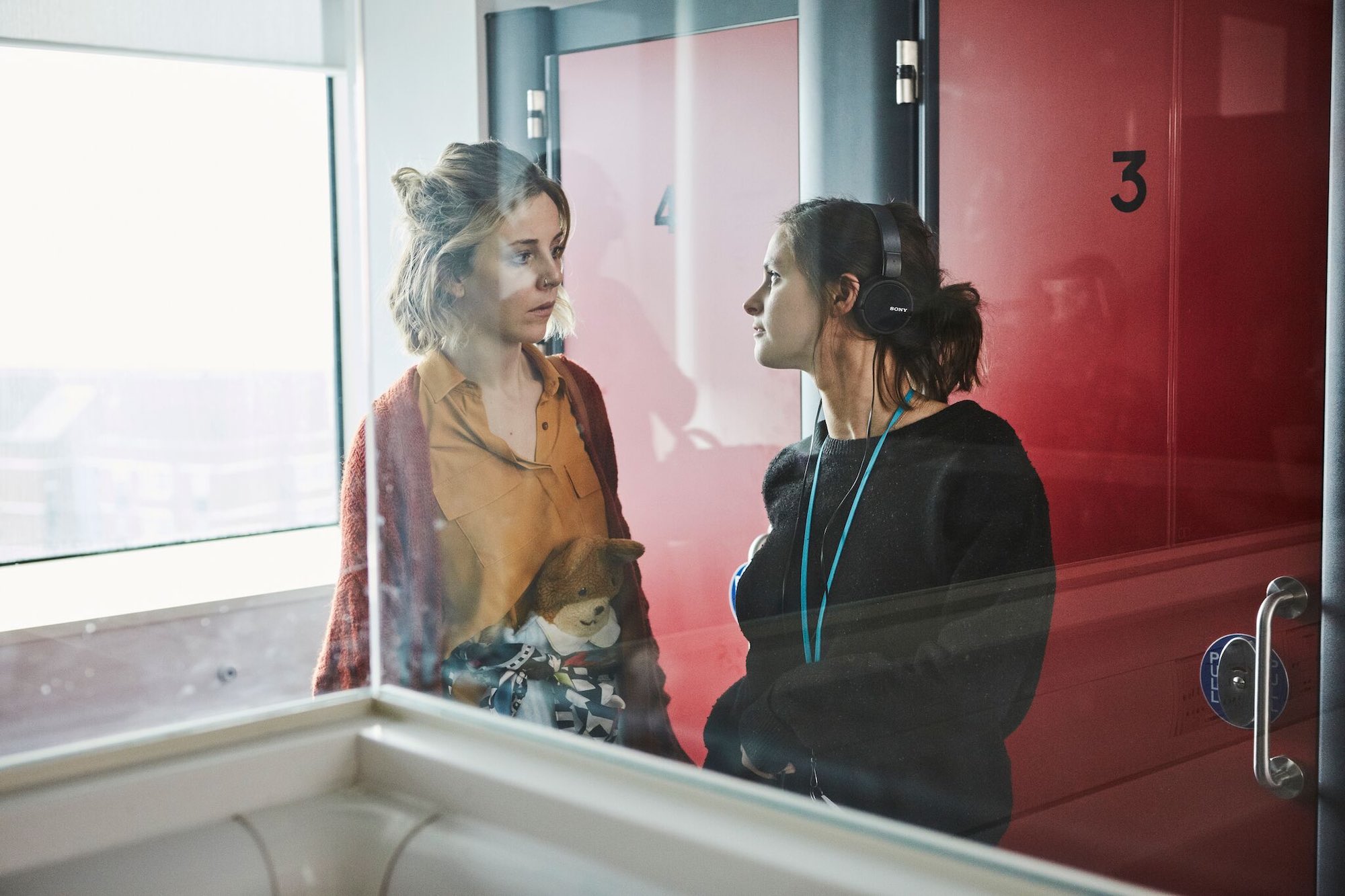
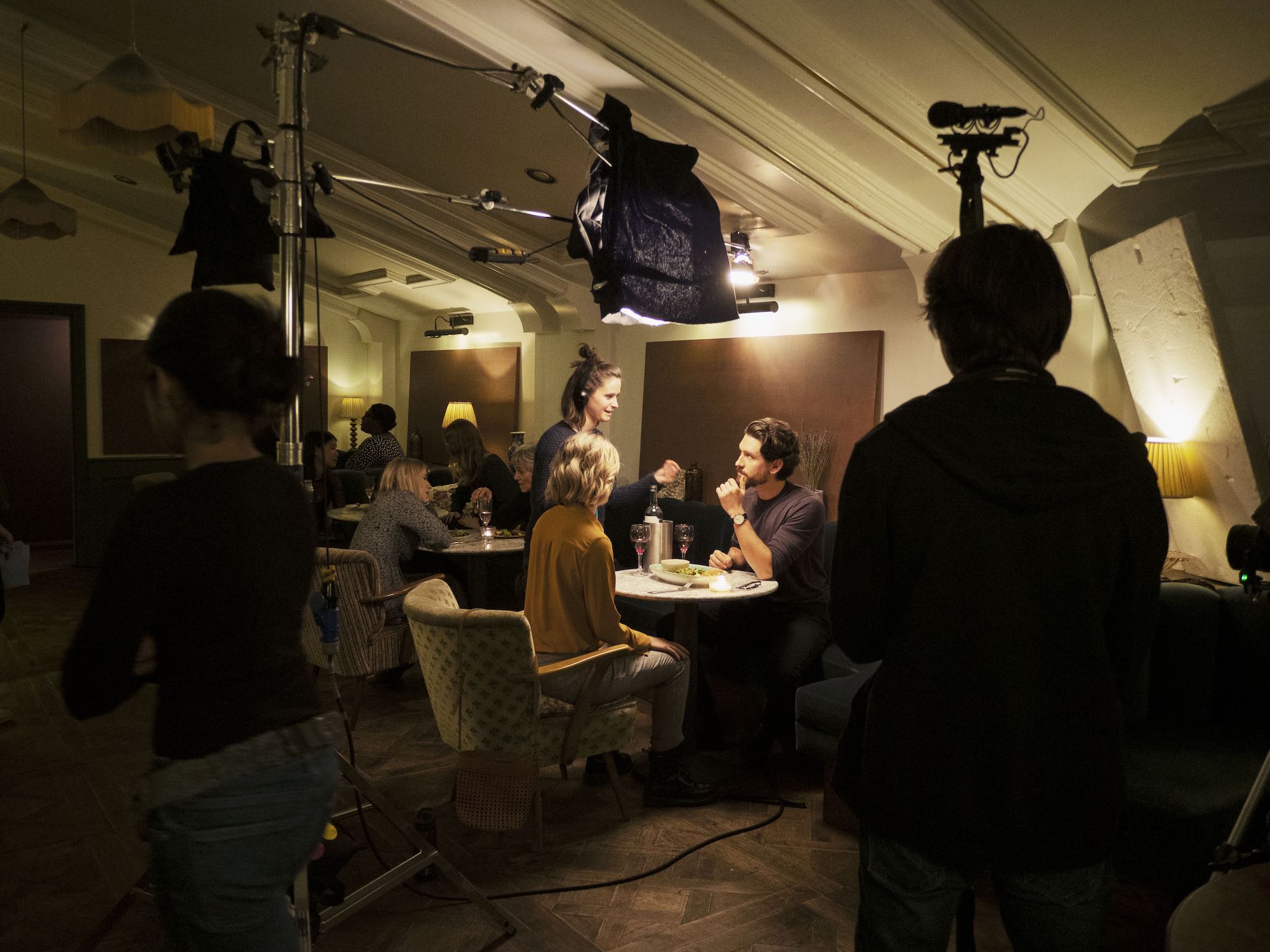
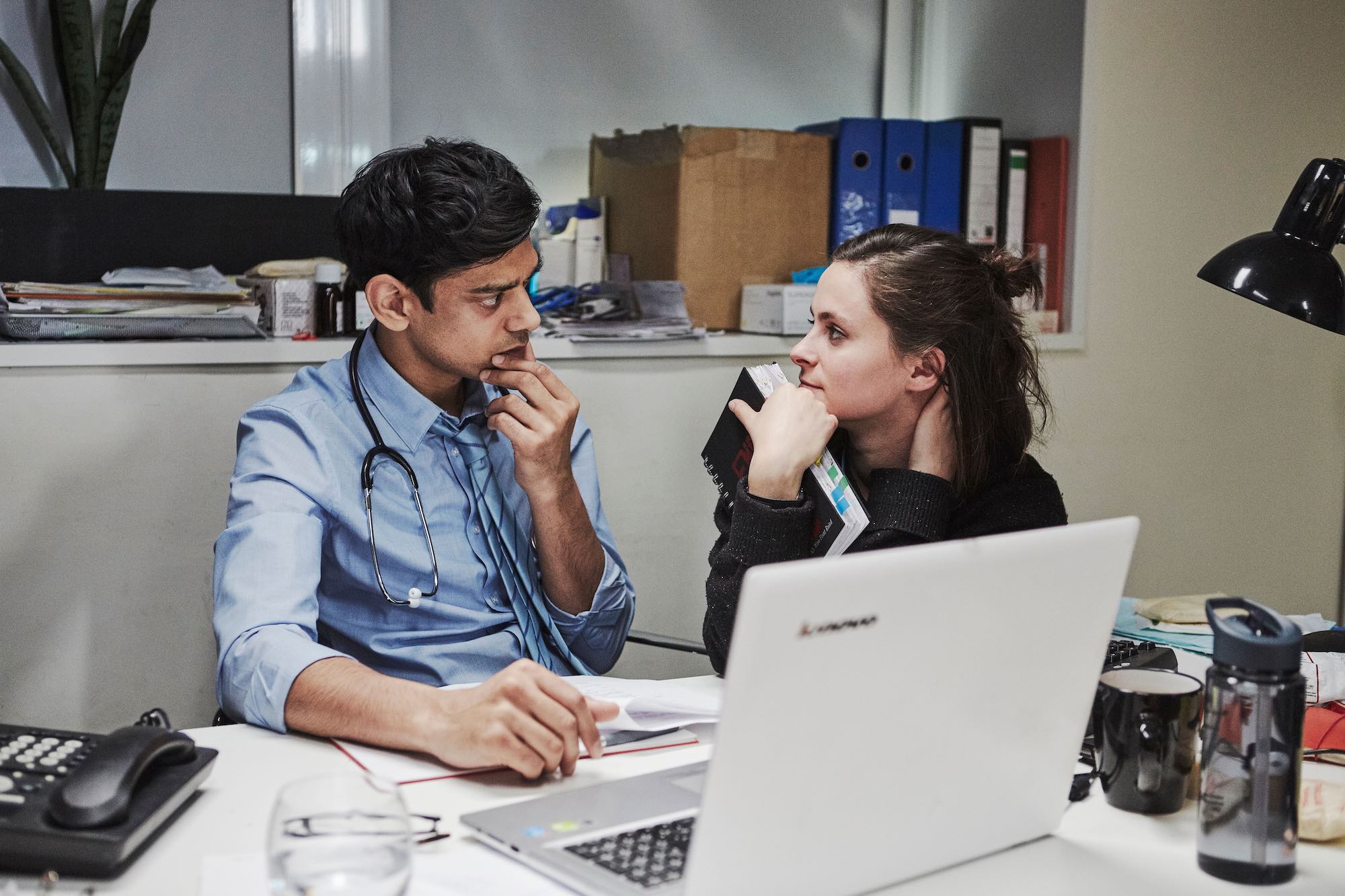
I find tone the hardest thing to intellectualise. The easiest part of it is to always go after truth in performance because that always makes things funnier and more dramatic. Then, I think to some extent, it’s a case of following your instinct and your taste. With End-O, I had the sense very early on that classical music would help us with the dual tone. It would bring an epic feel to the film, which made me laugh given that we’re talking about bodies, period blood and sex. But it also at points has the opposite effect, helping us tap into the deep emotion and grief that the characters are feeling.
Humour is crucial to how we process difficult things and so I think it’s often the most interesting way to tackle something.
We also created abstract representations of what is going on inside the women’s bodies using fruit and vegetables. This was a section in which it was also really important to strike a tonal balance. We wanted the fruit and veg uteruses to look beautiful in their own way, but of course, the idea of it is totally absurd. It allows us to tell the story in a light, tongue in cheek way, but also to really tap into something visceral, make you feel the character’s pain. It’s silly, but also makes you flinch.
How did you work with Sophia to develop Jaq and help her understand the character?
Sophia is an incredibly talented, emotionally astute and instinctive actor. She connected with the character through her emotional reactions to things, in particular, Jaq’s denial of her situation, and the deep bond of loyalty and protectiveness towards her sister. These are universal emotions which we talked through in quite a lot of detail beforehand. For lots of specifics, we were lucky to have Elaine who could answer questions. For example, we mapped out what level of pain on a scale of one to ten, Jaq would be in at different points of the film, and Elaine was able to describe those for us in really helpful, evocative ways. Finally, on the day, we tried stuff out and tried to give ourselves as much freedom as possible. Sophia is so in the moment and that is the dream.
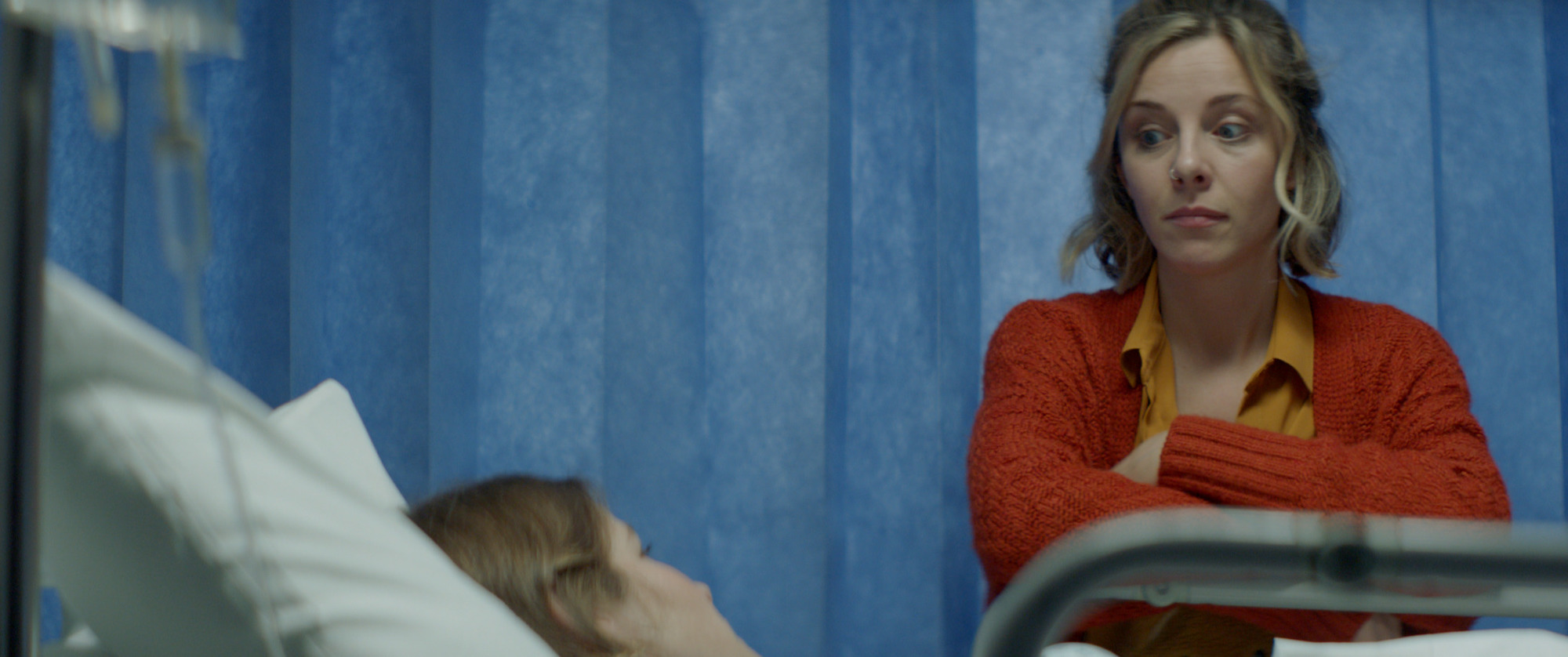
We spoke to you previously about both Sex Ed and Pregnant Pause, what is it about the taboo topics those films centre on that keeps you coming back to them?
I know, it’s weird isn’t it?! I do seem to be drawn to certain topics over and over again. I’m honestly not totally sure what it is, it’s not a conscious decision. But I think fundamentally I feel there’s something in these intimate subjects that is so primal and speaks to much larger themes. And precisely because they are a bit taboo, they are worth exploring, especially with humour. They are experiences that myself and other people I know go through and that we don’t always have the language to talk about.
How did you find the crowdfunding process for End-O? Is it something you’d revisit for future projects?
It’s pretty exhausting to be honest. Everyone always says that and I didn’t really understand why until I did it. You have to be constantly pushing the campaign and thinking of ways to increase your reach, posting, emailing, reminding people. You really have to get over any squeamishness around self promotion and asking people for money, both of which I struggle with. But thankfully, I was doing this with my incredible producers, Alex Blue and Kate Phibbs. Alex has done several of these before and is an absolute expert. Also, this felt like the right project for crowdfunding because we hoped there might be an audience out there who would want to see this film, people who suffered from Endometriosis or had loved ones who did.
I feel there’s something in these intimate subjects that is so primal and speaks to much larger themes.
That was the most rewarding part of the campaign, actually managing to break out of our direct circles of friends and family and reach strangers in online communities focused on Endo. Hearing from them, and receiving donations from them, was so amazing. It not only made the film possible, it also made us acutely aware of the burden on us to deliver something that would speak to them, that would feel real and truthful. A challenge we were very honoured to take on!
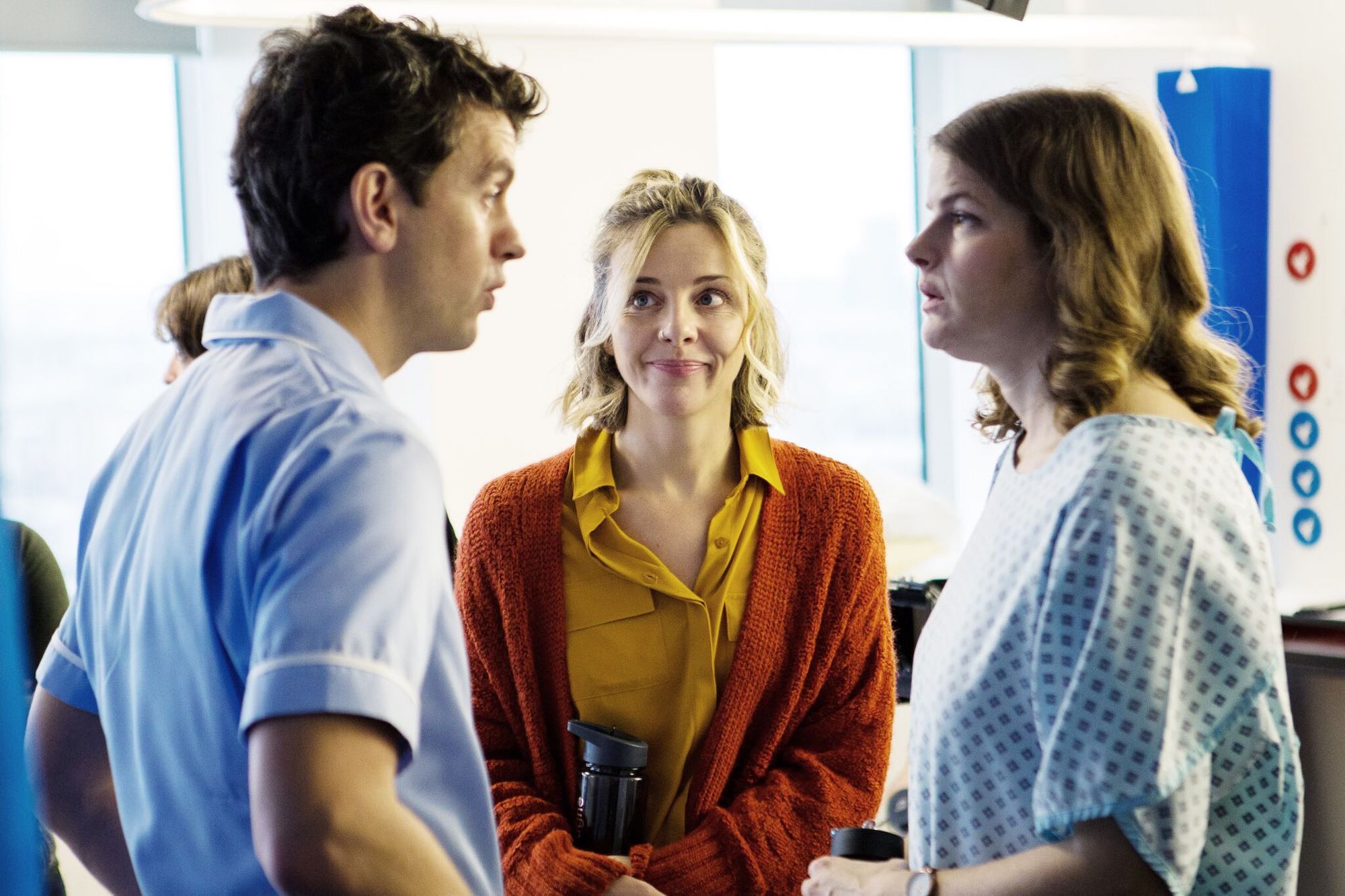


What are you hoping audiences take away from watching End-O?
I hope they learn something about Endometriosis, but mainly I hope they get a glimpse into what it might feel like to be someone trying to live a normal life in a body that is working against you. I hope they might get a sense of the shame and mystery that still clouds conversations around issues that literally get in the way of women living their lives. I hope it will make people more comfortable talking about these topics and starting to have some of these conversations. Like with any film, I also just hope they have a laugh, connect with Jaq and feel for her and her sister.
What’s next for you?
I’ve just been directing two episodes of the second series of Sex Education for Netflix, another example of me being drawn to the taboo topics you asked about earlier! I had such an amazing time doing it and I’m now in the writers room for the third series. I’m also developing my own TV shows and more films, although I’m not yet sure what will be next.
You can catch up on all of DN’s coverage from the London Film Festival here.

